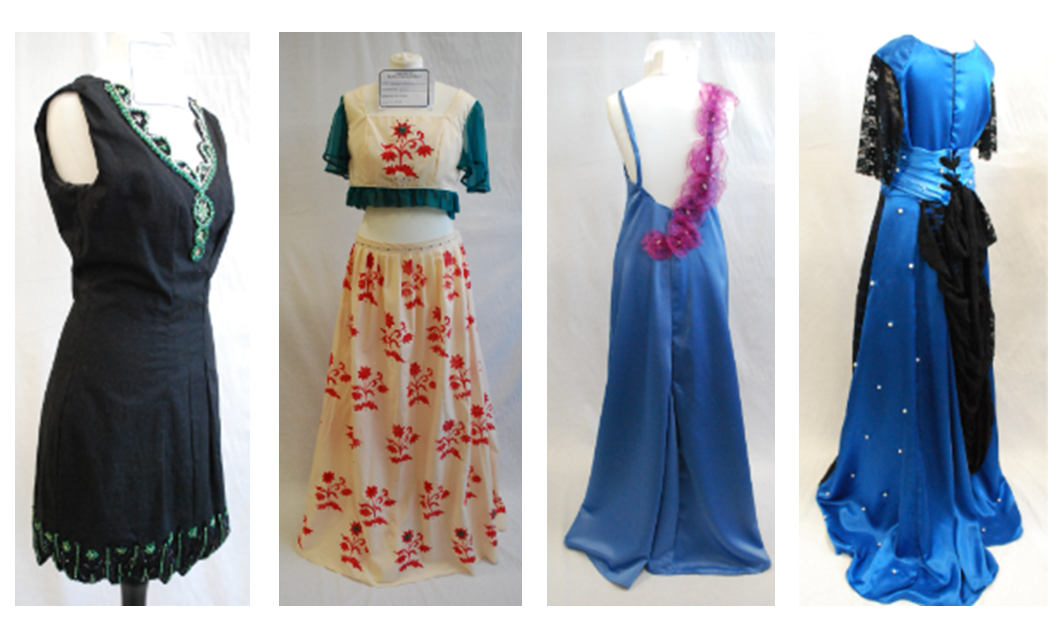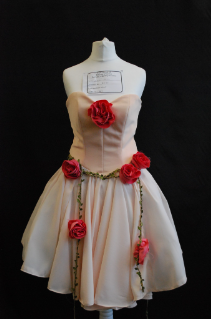A Level Fashion & Textiles
| Curriculum Intent and Overview |
|---|
|
The curriculum covers a wide range of opportunities which run alongside a rich extra-curricular timetable. This includes both creative and STEM elements. Students are extremely proud of their achievements, and they really value the supportive nature and encouragement the department gives them. The curriculum develops and promotes:
|
|
|
 Curriculum Leader: Mrs C Draper
Curriculum Leader: Mrs C Draper
Exam Board: AQA
Specification Number: 7562
What will be studied?
We study Fashion and Textiles to develop technical knowledge and practical skills in areas such as drawing, fashion illustration, fabric technology, pattern cutting, computer-aided design (CAD), sewing and garment construction. As well as specific skills invaluable transferable skills will be gained such as increased independence, visual awareness, creative thinking and problem solving, research and analytical skills and presentation skills.
We look back at what iconic products have been made, which designers influenced fashions throughout time, what life events and cultures determined what we wore, what technological advances were made to change what we wear today and what we might wear in the future.
The Fashion and Textile sector is diverse and covers a wide range of roles, from processing raw fibres, such as spinning weaving and dying, to sourcing new materials and products, manufacturing and production, textile technology, marketing branding and retailing, as well as Design.
You will be able to appraise standards and brands of merchandise and will develop the ability to distinguish quality in fabrics.
This creative and thought-provoking qualification gives students the practical skills, theoretical knowledge and confidence to succeed in a number of careers, especially those in the creative industries.
Assessment:
In Year 12 lessons are directed towards broadening experience, skills and knowledge. Students begin their NEA (coursework) towards the end of Year 12 and continue this into most of Year 13.
You will sit 2 exams at the end of Year 13.
Your final grade is made up of:
- 50% exams
- 50% NEA
Expectations of Students:
A passion for fashion and textiles, an intrigue into the history and development of fashion and a desire to explore techniques and processes. Students are expected to take part in personal and group visits to galleries and exhibitions in order to experience fashion and textile work at first hand. Students must commit to additional hours of sketchbook and research preparation per week.
Career Paths:
Mo st Fashion & Textile courses require a portfolio for entrance from which they can judge the students ability, commitment and potential for themselves. Completion of the A level course will help the students to develop a portfolio of the required standard.
st Fashion & Textile courses require a portfolio for entrance from which they can judge the students ability, commitment and potential for themselves. Completion of the A level course will help the students to develop a portfolio of the required standard.
Opportunities for future study and employment cover both academic and artistic fields including fashion designer, retail buyer, retail manager, retail merchandiser, stylist, textile designer, visual merchandiser, illustrator, costume designer, set design, fashion promotion, fashion journalism, makeup artist, jewellery designer, etc.
What websites are recommended?
- V&A · The World's Leading Museum Of Art And Design (vam.ac.uk)
- Home | Fashion and Textile Museum (fashiontextilemuseum.org)
- Trend Forecasting & Analytics 2023-2031 | WGSN
What equipment is needed?
A lever arch folder with dividers for the theory element of the course.
Drawing pencils, fineliners, colouring pencils, watercolours and pritt sticks.
Practical resources for Year 12 will mostly be provided by the school and basics will be provided in Year 13. Specific fabrics and connotations would need to be provided by students for their NEA in Year 13